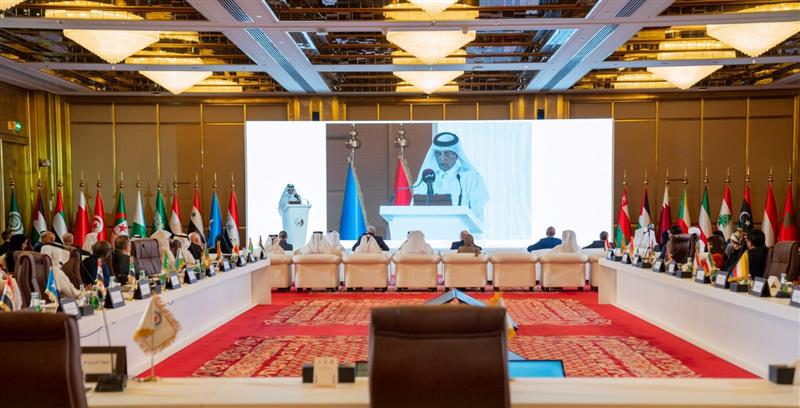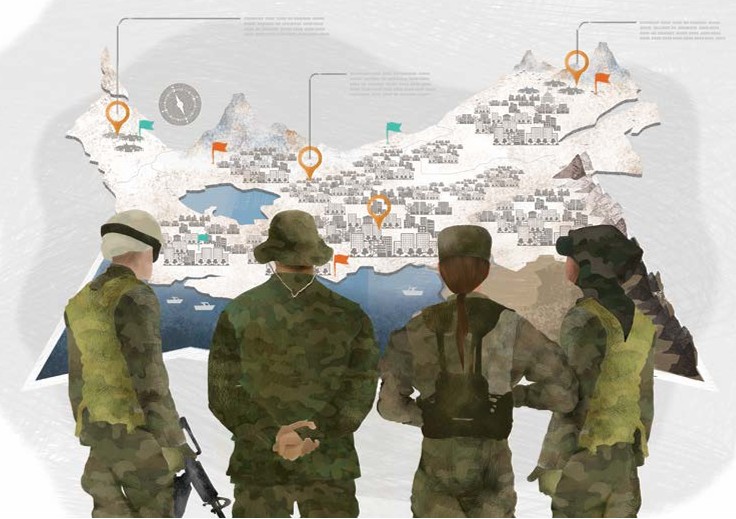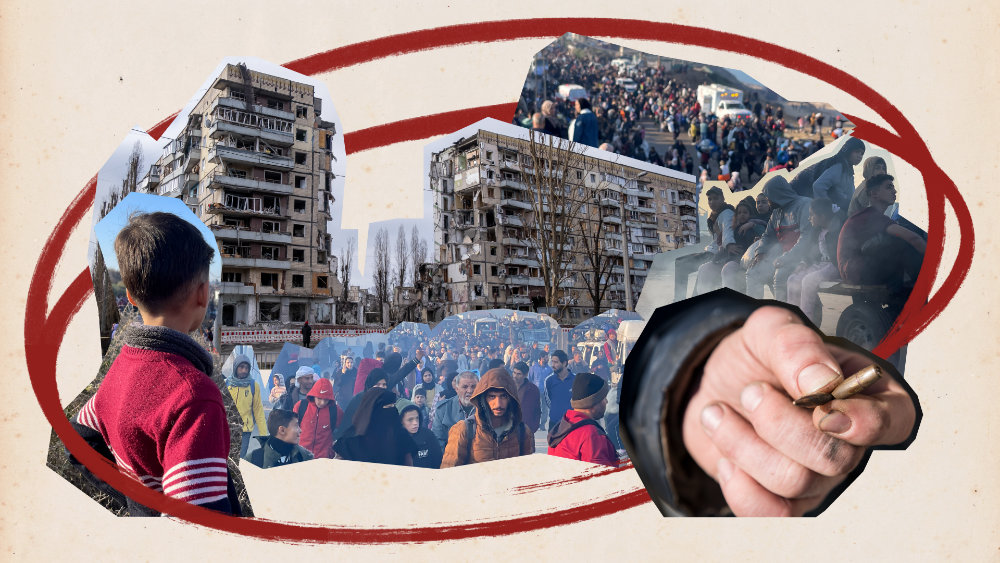The work and contribution of national committees on IHL (NCIHLs) can be relevant in a range of circumstances, whether a country is at peace, emerging from conflict, still affected by past conflict or involved in one or more current armed conflicts. Many successful national structures are proof that if they function efficiently and have the required capacities, NCIHLs can provide considerable support to states in implementing their commitments under international humanitarian law (IHL) and achieving policy objectives in this area.
The roads to national implementation of IHL can vary, creating new opportunities through events that arise, and actors encountered along the way. In this post, Yasmin Bedir, ICRC Communications Officer for the Gulf Cooperation Council Countries, provides a recap of the Twelfth Regional Meeting of Arab National Committees on IHL. The meeting, run with contributions from Dr Omar Mekky, Regional Legal Coordinator for the Near and Middle East Region at the ICRC, resulted in a dynamic two-year action plan with pledged commitments on specific themes and obligations for the implementation of IHL.
The road towards effective implementation of international humanitarian law (IHL) is a continuous process where important milestones are reached at every step. As part of such a process, national committees on IHL (NCIHLs) and similar entities have played a key driving role.
As with most long-haul road trips, one tends to start with an idea of the roads that will be travelled and what the end destination will look like. In this case, the common destination is better respect for international humanitarian law and its implementation at the national level.
A regional Arab forum on the implementation of IHL
Out of the 22 members of the League of Arab States (LAS), 19 have established NCIHLs, underlining the value of the Arab world’s contributions to international humanitarian law and policy.[1] Each of these set out on their journeys at different moments in their respective histories. Nevertheless, they are all guided by a shared vision of where they are going and what they need to achieve: greater respect for international humanitarian law.
The crucial work of Arab NCIHLs in guaranteeing greater respect for IHL, by focusing on concrete achievements and common traits, has made remarkable progress over the last 25 years.
The first Regional Arab Expert Meeting on the Implementation of IHL took place in 1999 and has since served as a cornerstone in implementing IHL in the Arab region and in solidifying the partnerships of its co-organizers. It resulted in the issuance of the Cairo Declaration on the Implementation of IHL, which, inter alia, led to the establishment of a “follow-up committee” to ensure the enforcement of the declaration. The committee is present and active and consists of the League of Arab States (represented by its legal affairs division) and the ICRC (represented by the NAME regional IHL department in Cairo). During the meeting, the ICRC and the League of Arab States signed a memorandum of understanding (MoU), specifically on cooperation on all IHL-related topics.
The regional meeting (which takes place every two years, circumstances permitting), the Cairo Declaration, the follow-up committee, and the MoU have been built upon and developed consistently over the years since, garnering countless achievements and milestones on IHL implementation and ICRC operations.
The 12th regional Arab NCIHLs meeting
On October 9th and 10th 2023, the ICRC participated in the Twelfth Regional Meeting of Arab National Committees on IHL (NCIHLs) in Doha, Qatar, co-organized by the League of Arab States, the ICRC, and the Qatari NCIHL. With an opening session convening just days following the onset of renewed hostilities between Israel and Hamas, the ICRC made the careful and deliberate decision to continue the forum as planned, given the ongoing and heightened relevance of IHL in the region.
As in the past, the regional meeting provided a platform for the ICRC to bring together all Arab NCIHLs to update them on contemporary and relevant IHL topics, network and further solidify relations with key stakeholders, and mobilize/influence the region on key topics.
It also served as a regional forum for Arab NCIHLs to exchange experiences and best practices related to the implementation of IHL at the national level, allowing for positive influence on IHL implementation efforts, be it through raising regional awareness on particular topics or encouraging states to act more at the national level.
Over two days, the event gathered high-level influential governmental officials and participants from 19 Arab states – NCIHLs are usually headed by Ministers of Justice or Foreign Affairs, their deputies, or influential stakeholders in the country.
The ICRC took the lead in identifying and presenting the main technical themes of discussion, including counterterrorism and humanitarian action, new technologies of warfare, managing support relationships in armed conflicts to reduce the human cost of war, and the protection of missing persons and their families.
IHL implementation in action
The meeting was concluded with a credible and responsive two-year action plan to be carried out and adopted by Arab states, in which they pledged their commitments towards specific themes and obligations for the implementation of IHL. The ICRC provided technical support in the adoption of the action plan, based on its reading of the different needs and interests in the region and in coordination with League of Arab States and the Qatar NCIHL. In addition, the ICRC shared perspectives and updates on specific issues relating to ensuring respect for IHL, and its implementation at the national level.
An additional significant outcome was the joint periodic report on the implementation of IHL in the Arab region, published since 2003 by the ICRC in cooperation with the League of Arab States, the latest of which is the eighth periodic report published in 2018. The ninth periodic report is expected to be published in 2024, based on the exchanges during the 12th regional meeting and how the participating states presented their efforts and vision for the development of IHL.
The report aims to reflect state practices and the progress and commitment made by Arab states in improving the implementation of and compliance with IHL over four years. It symbolizes and affirms the efforts and commitment of Arab states to the implementation of IHL to alleviate human suffering despite the challenges the region witnessed as a result of years of conflicts.
[1] Djibouti, Mauritania and Somalia have not established NCIHLs.
See also:
- Rachael Kitching, Anne Quintin, The well-trodden path of national international humanitarian law committees, International Review of the Red Cross, November 2022
- Rachael Kitching, Vanessa Murphy, Kelisiana Thynne, Walking the talk on SGBV: an implementation checklist to narrow the gaps between international law and domestic practice, November 25, 2021
- ICRC Advisory Service on IHL, Beyond ratification: National committees and the implementation of international humanitarian law, November 21, 2016







Comments